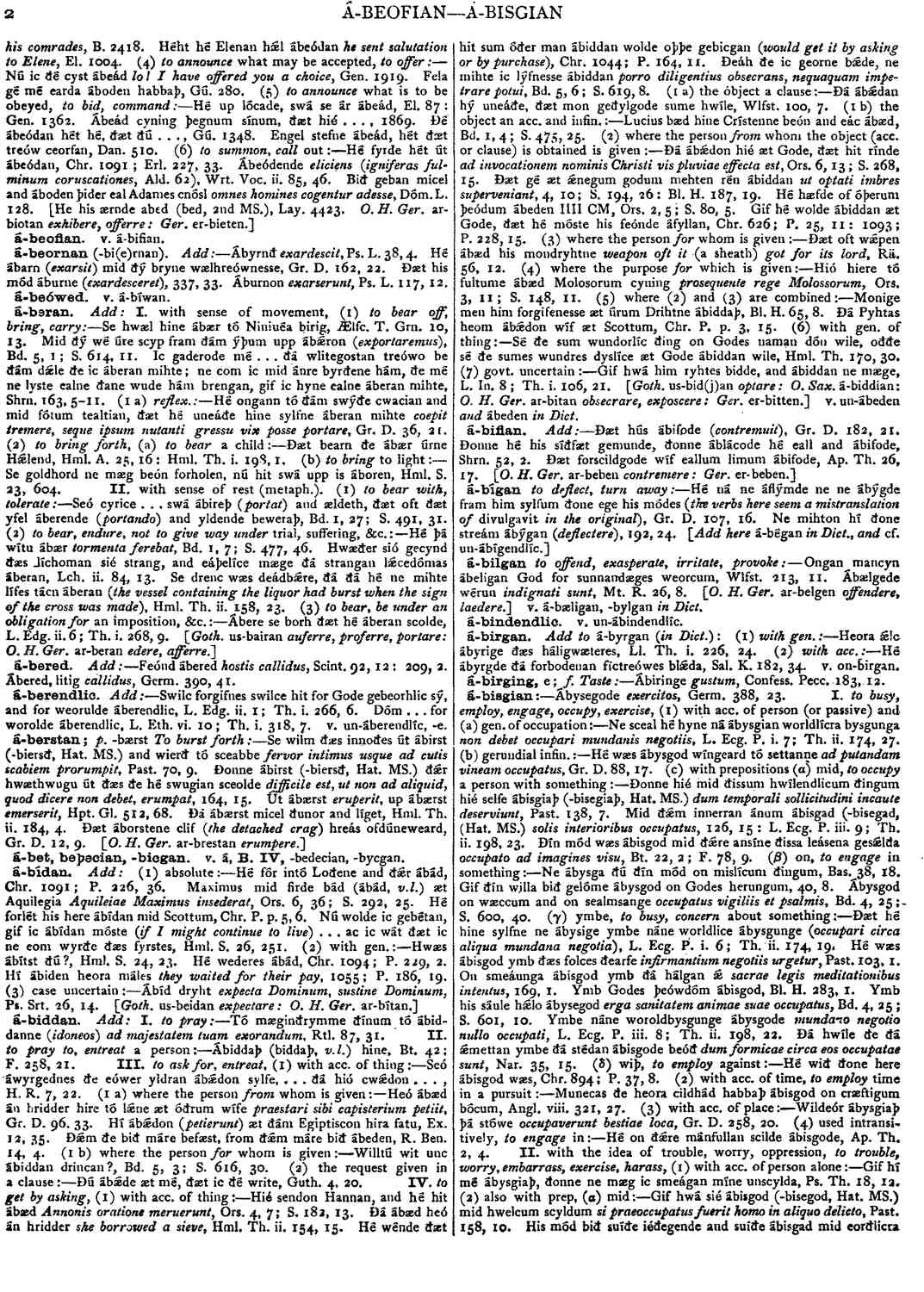á-beran
-
Se hwæl hine ábær tó Niniuéa birig,
- Ælfc. T. Grn. 10, 13.
-
Mid ðý wé úre scyp fram ðám ýþum upp ábǽron (
exportaremus
),- Bd. 5, 1; S. 614, 11.
-
Ic gaderode mé . . . ðá wlitegostan treówo be ðám dǽle ðe ic áberan mihte; ne com ic mid ánre byrðene hám, ðe mé ne lyste ealne ðane wude hám brengan, gif ic hyne ealne áberan mihte. Shrn. 163, 5-11. (1 a) reflex. :-- Hé ongann tó ðám swýðe cwacian and mid fótum tealtian, ðæt hé uneáðe hine sylfne áberan mihte
coepit tremere, seque ipsum nutanti gressu vix posse portare
.- Gr. D. 36, 21.
-
Ðæt bearn ðe ábær úrne Hǽlend,
- Hml. A. 25, 16 : Hml. Th. i. 198, 1.
-
Se goldhord ne mæg beón forholen, nú hit swá upp is áboren,
- Hml. S. 23, 604.
-
Seó cyrice . . . swá ábireþ (
portat) and ældeth, ðæt oft ðæt yfel áberende (portando )
and yldende beweraþ,- Bd. 1, 27; 8. 491, 31.
-
Hé þá wítu ábær
tormenta ferebat
,- Bd. 1, 7; S. 477, 46.
-
Hwæðer sió gecynd ðæs líchoman sié strang, and eáþelíce mæge ðá strangan lǽcedómas áberan,
- Lch. ii. 84, 13.
-
Se drenc wæs deádbǽre, ðá ðá hé ne mihte lífes tácn áberan (
the vessel containing the liquor had burst when the sign of the cross was made
),- Hml. Th. ii. 158, 23.
-
Ábere se borh ðæt hé áberan scolde,
- L. Edg. ii. 6; Th. i. 268, 9.
Bosworth, Joseph. “á-beran.” In An Anglo-Saxon Dictionary Online, edited by Thomas Northcote Toller, Christ Sean, and Ondřej Tichy. Prague: Faculty of Arts, Charles University, 2014. https://bosworthtoller.com/37326.
Checked: 0